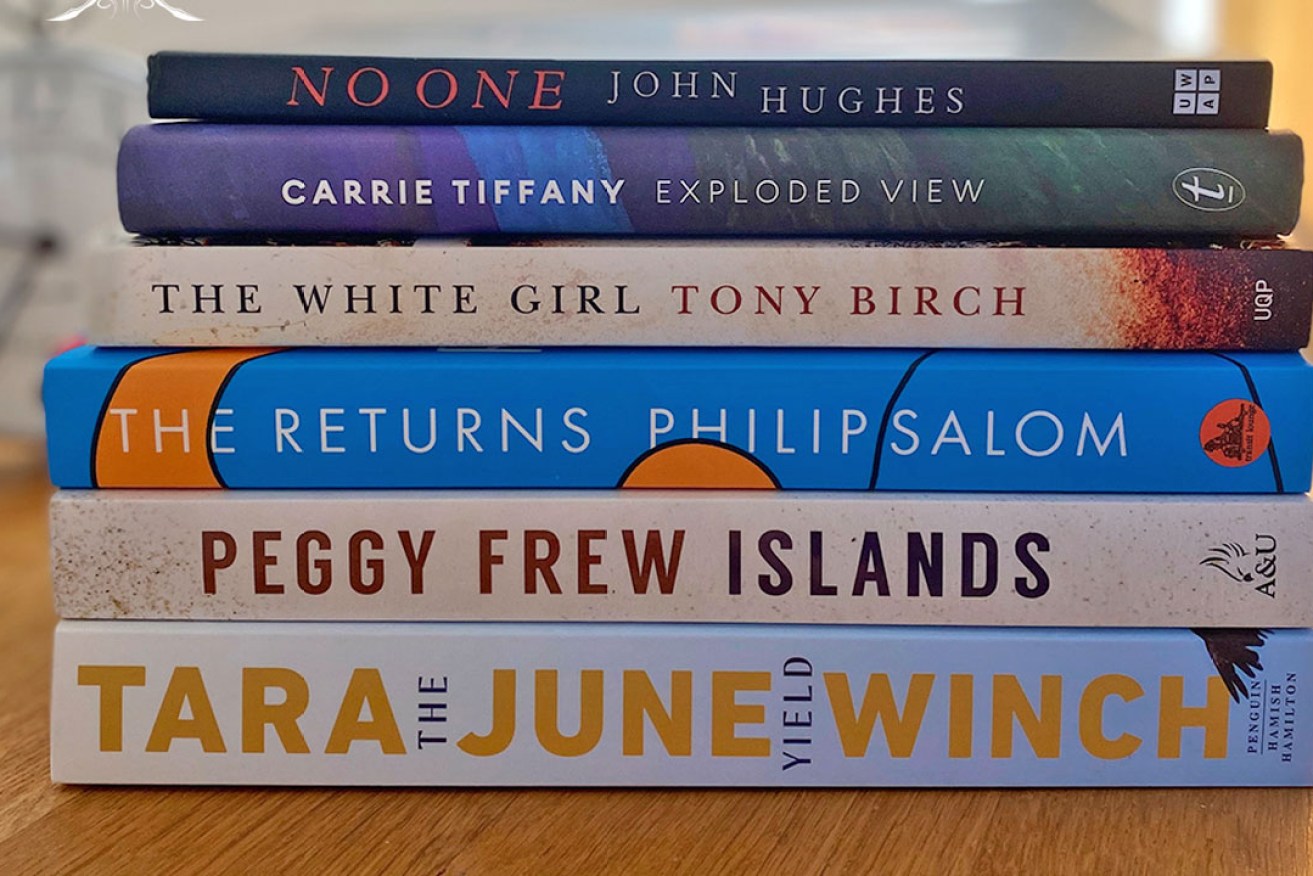Trauma haunts 2020 Miles Franklin Literary Award shortlist
Trauma casts a long shadow in all six novels shortlisted for Australia’s richest literary prize, with a powerhouse of experienced authors vying for the 2020 Miles Franklin.

Contenders for the $60,000 award are evenly split between men and women but there are no first-time authors this year and four nominees have had books shortlisted in previous years.
They include Tony Birch, whose novel The White Girl has been described by the jury as a celebration of Aboriginal resilience which demands Australia address its savage past. Birch was previously shortlisted for Blood in 2012, and his latest work won the NSW Premier’s Award for Indigenous Writing.
Other nominees are Islands, by Peggy Frew (who was also shortlisted for Hope Farm in 2016), and twice-shortlisted author Carrie Tiffany with her work Exploded View.
They’re joined by poet and novelist Philip Salom with The Returns, a playful portrait of a seemingly ordinary, middle-aged North Melbourne couple.
The two Miles Franklin newcomers are Tara June Winch, whose work The Yield has been both a popular and critical darling, winning the People’s Choice and Book of the Year at the 2020 NSW Premier’s Literary Awards, and John Hughes, with his third novel No One.
Speaking on behalf of the judging panel, the award’s chair, Richard Neville, said while the books were diverse in form and tone they all explored the lasting effects of trauma.
“From familial stories of neglect and abuse to the national story of racial and cultural dispossession, these novels demonstrate powerfully how past trauma continues to inform the present,” he said in a statement today.
The winner will be announced on July 16 and each of the shortlisted authors will receive $5000 from the Copyright Agency’s Cultural Fund. -AAP
The 2020 Miles Franklin Literary Award shortlist, with jury comments:
THE WHITE GIRL by Tony Birch (The University of Queensland Press): This novel describes the journey of Odette and her 13-year-old granddaughter Sissy as they struggle to stay together when the authorities are determined to break them apart. The story is not given to sentimentality; instead it is a celebration of Aboriginal resilience and kinship in response to trauma. It demands that Australia addresses this savage past.
ISLANDS by Peggy Frew (Allen & Unwin): This poetic novel maps the disintegration of a nuclear family, set against the backdrop of both Phillip Island and Melbourne suburbia. Frew takes great narrative risks to explore the generational repercussions of loss and trauma through a fractured, multi-perspectival account in which time becomes fluid, truths are radically subjective, and absence is always a wounding presence.
NO ONE by John Hughes (UWA Publishing): Part crime novel, part road movie, part love story, No One takes us to the heart of contemporary Australia’s festering relationship with its Indigenous past, and the long tail of the legacies of institutional care. What emerges is a portrait of being Australian that entails the necessity of listening to the relentless rumbles of traumatic histories.
THE RETURNS by Philip Salom (Transit Lounge): A celebration of the humble and unsung, this playful novel is grounded in a specific North Melbourne locale. Trevor and Elizabeth might be called, disparagingly, ordinary middle-aged people. Really, they are just in the middle of living, with all the everyday concerns that implies. The characters’ failings and small triumphs are observed with empathy and compassion.
EXPLODED VIEW by Carrie Tiffany (Text Publishing): Set in Perth’s outer suburbs in the 1970s, this novel is narrated by an unnamed adolescent girl who has chosen not to speak. It charts the dissociative, watchful and knowing thoughts of someone traumatised by familial neglect and sexual abuse. Tiffany interrogates power and gender, gives voice to voicelessness and masterfully tells a tale that must never again be unheard.
THE YIELD by Tara June Winch (Penguin Books Australia): Through the voices of three narrators, this novel explores the gap between white and Indigenous cultures as well as the intersections between the contemporary and the colonial. It illustrates how Indigenous history carries forward pain and sorrow yet also allows compassion, resilience, dignity, humour and humanity to flourish.




